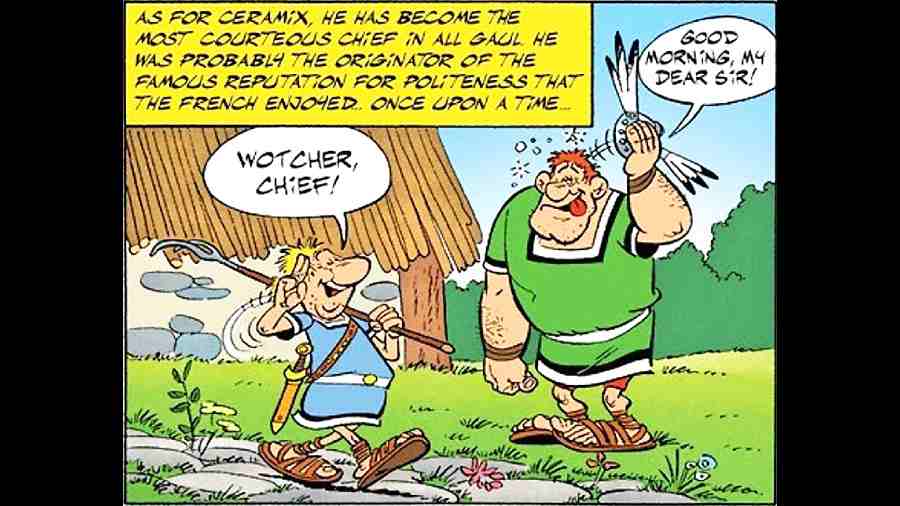Ceramix’s extreme politeness may be the origin of the French reputation for courtesy, as is depicted in Asterix and the Big Fight, but the root of British politeness can be traced back by only a few centuries. During 1711-1712, The Spectator, an English periodical, regularly advised its readers “to enliven morality with wit, and to temper wit with morality” in order to be polite.
Wit got intertwined with politeness in a teacup when Chaii Stop, a cafe in Lancashire, recently came up with a novel way of rewarding customers for being polite. Its price chart showed ‘Desi Chai’ at £5, ‘Desi Chai, Please’ at £3, and ‘Hello, Desi Chai Please’ at £1.90.
Politeness was brewed in a coffee mug as well. In 2016, CUPS Coffee & Tea in Virginia fixed the price of ‘One small coffee’ at $5; but ‘One small coffee, please’ cost $3 while $1.75 would fetch a ‘Hello, I’d like one small coffee please’. The French café, L’Hamburgé, in Grenoble charged ‘barbarians’ €1.50 for their coffee and €1 for polite customers.
An Indian version can be traced to Dakshin 5, a restaurant in Hyderabad, which offers diners discounts on bills if customers are courteous. While the price of a thali is Rs 165, the price drops to Rs 150 if you add ‘please’. If you greet the staff with a ‘Good afternoon’, you would be charged only Rs 135.
This approach may have wider applications. In 2016, as part of a campus-wide campaign to improve students’ manners, Anhui Normal University in Wuhu, China, cut the cost of a meal from 6 yuan to 3 yuan for students in its canteen if they uttered pleasantries such as ‘hello’, ‘please’, and ‘thank you’. Students would also be rewarded if they complimented the staff for their work.
Politeness, however, is not always free of cost, even though it is perceived to be so. I’ve read somewhere that Brits are forking out an additional £300 a year on items or activities only to avoid awkwardness or a confrontation — such as buying an unplanned round of drinks, giving cash to charity collectors, not asking for money owed to them, or offering to split the bill with friends. And as per the expenses management provider, Web expenses, nearly 80% of office-based managers surveyed in the United Kingdom believed that being too polite could effectively cost their company extra money. In a 2021 article, Sanford Goldberg of Northwestern University, Illinois, investigated some of the epistemic costs of politeness. One cost, Goldberg writes, is the tendency to “allow known falsehoods to pass without comment.” Moreover, “communities that are polite sap the signaling potential of conversational silence, thereby losing out on the prospects of a cheap way [of distributing] the burden of testimonial monitoring.”
Here’s one of my English experiences. About two decades ago, at the cafeteria of the University of Sussex, I asked for ‘rice’ during lunch and the lady in charge was markedly unhappy. They didn’t have a discriminatory price chart, but she went onto teach me how I should say ‘Rice, please’. A useful lesson, indeed. But I thought that my tone and approach were reasonably courteous, while the lady’s teaching style was a bit rude.
Are ‘please’ and ‘thank you’ then the only testaments to impeccable manners? Or is the tone important as well? The following example is illustrative. “Will you please leave me alone?” shouted my neighbour’s child to her parents. She did use a ‘please’.
Atanu Biswas is Professor of Statistics, Indian Statistical Institute, Calcutta











